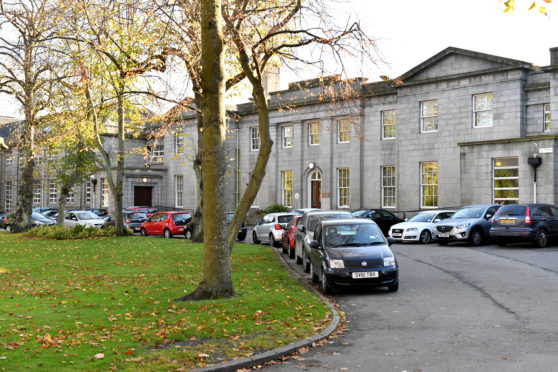An Aberdeen headteacher has announced his retirement after inspectors rated his school “weak”.
Inspectors visited Harlaw Academy late last year, and have now published their report.
It ranked the well-being, equality and inclusion of pupils, and their leadership of change, as weak.
Problems highlighted included bullying, safety and exclusion rates.
Parents and staff were told privately about some of the issues following the inspection.
And now headteacher David Innes has retired to allow his successor to work on “areas of improvement”.
In a blog post, he wrote: “As the HMIe inspection report will be published around February, it made sense to step aside at that time so that my successor can work on any areas for improvement with staff, pupils, parents and the wider community.”
During their visit, inspectors found that while most young people felt safe in the school, a few did not.
It noted that teachers raised awareness of topics relevant to the “local community such as knife crime” and social media risks.
Far “too many” parents and pupils expressed concerns about bullying and some young people did not “feel included” in the school community because of this.
The school did seek out pupil’s views on various topics, and included them in initiatives such as Young Leaders of Learning, but inspectors found that some youngsters experienced challenges because of “attitudes of a few people towards their protected characteristics”.
Protected characteristics include race, sexual orientation, religion or belief, sex, disability and gender reassignment.
This led to pupils excluding themselves from areas of the school, prompting inspectors to urge staff to “listen to and act on young people’s views more consistently”.
Persistent “low-level disruption” in younger year groups prevented some pupils from learning and an “inconsistent” quality of teaching was noted throughout the school.
The exclusion rates at the school were found to be “too high” with young people being “excluded frequently” in some cases.
However, staff and partners at the school did provide a range “of opportunities for young people to achieve” with pupil’s performing well in these challenges, the report noted.
It also recorded that in 2017/18, 99% of S6 school leavers entered a positive destination and there was an improvement in the number of young people who stayed on after S4 in 2018/19.
The watchdog will conduct a follow up later on this year.
